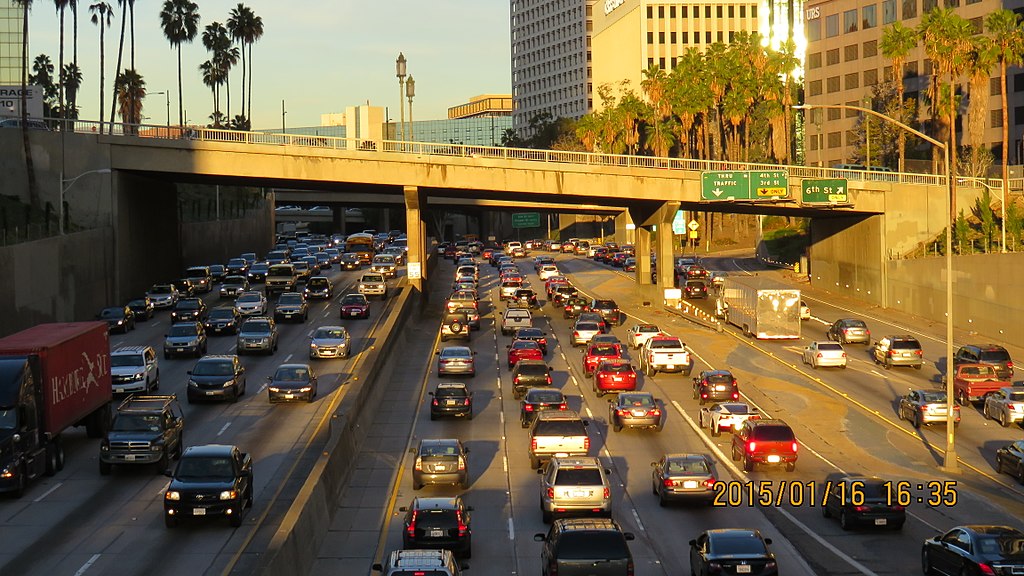Today, the Metro Board of Directors approved studying two new transportation programs that help reduce congestion while raising revenue: congestion pricing and taxing ride-hail trips.
The board has been kicking around congestion pricing for a few months now; it was initially raised as a way to generate some funding to help complete transportation projects in advance of the 2028 Olympics. See earlier Streetsblog coverage for background on:
- Metro's 28 by 2028 project list
- How accelerating mostly highway projects is not such a good thing
- What an equity-centered Olympics project list might look like
- Metro's proposed tax on Ride-Hail/TNC (Lyft, Uber)
- What's good about congestion pricing - how it can be good for equity
- Where the Metro board stands on congestion pricing
Metro's road pricing initiative, now called "The Re-Imagining of L.A. County," is a 12-24 month feasibility study of congestion pricing, including a strategy for addressing equity.
Today's motion approving a study doesn't mean that pricing will sail through tomorrow and be immediately imposed on the hard-working bloodmobile driver. Even in approving the studies, many Metro boardmembers continued to express concerns and skepticism. Metro CEO Phil Washington reassured the board they would still have "several more bites at the apple." In the coming months, the board will review the study's scope, award the study contract, and ultimately decide whether to proceed with any congestion pricing program proposed.
The motion also approved "exploring fees" for ride-hail (Lyft, Uber - also called TNCs - Transportation Network Companies) trips. A couple of boardmembers expressed the concern that ride-hail fees should go to local cities. Chief Innovation Officer Joshua Schank responded that Metro would be working together with local municipalities to build a coalition for a TNC fee.
A separate 28 by 2028 motion decoupled congestion pricing and ride-hail revenues from Olympics project acceleration. The motion directs Metro to continue to get projects ready for acceleration, while "prioritiz[ing] low-risk revenue sources," including state and federal monies.
While today's approvals represent small steps forward for congestion pricing, TNC fees, and project acceleration, time will tell what will actually get implemented.
For additional coverage of these approvals, see: The Source, Urbanize, and Curbed.






